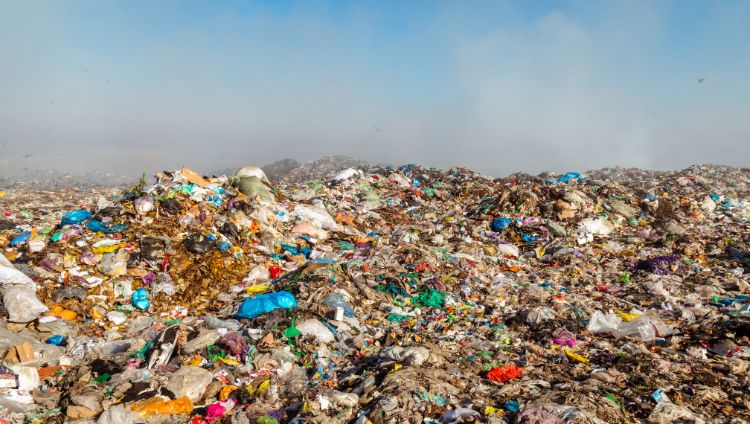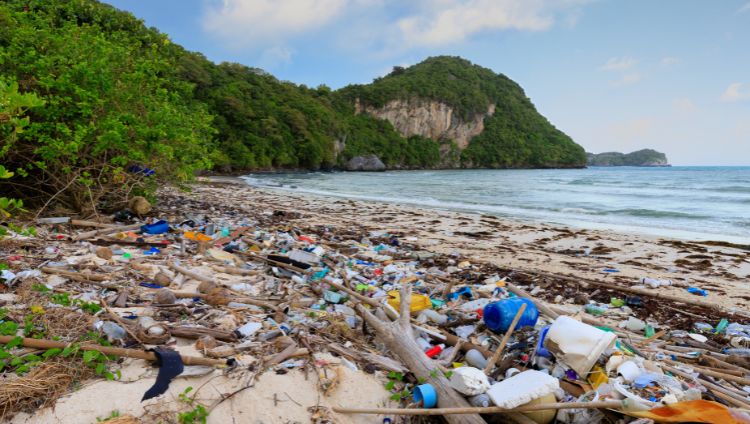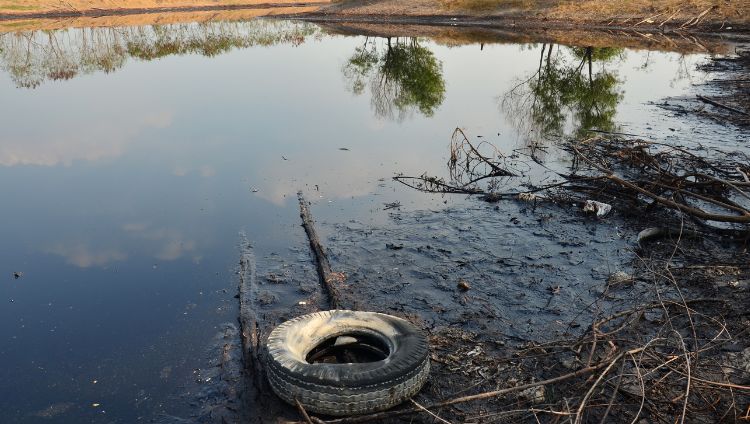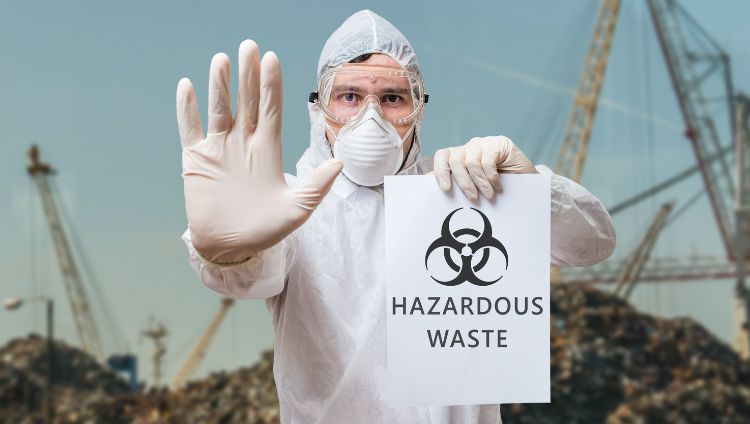Properly disposing of hazardous waste is of utmost importance in protecting our health and the environment.
Harmful substances found in items like batteries, cleaning chemicals, paints, and electronic waste have the potential to contaminate our soil, water, and air if mishandled.
The purpose of this article is to offer a comprehensive guide on how to dispose of hazardous waste safely, promoting a cleaner and healthier world for all.
Step-by-step guide
When it comes to the safe disposal of hazardous waste, it is crucial to use specific methods that minimize harm to human health and the environment.
Here are some common methods of safely disposing of hazardous waste:
Hazardous Waste Collection Programs
Many communities have designated collection programs where you can drop off hazardous waste at specified locations.
These programs ensure proper handling and disposal of various hazardous materials.
Learn more about these programs at How to Schedule Regular Dumpster Pickups.
Specialized Facilities
In specific locations, specialized facilities are set up to safely manage hazardous waste. These sites employ advanced techniques and technologies to process dangerous materials while adhering to all essential safety regulations.
For more information on waste management technologies, read Innovative Technologies Being Used for Efficient Waste Disposal and Recycling.
Recycling
Recycling hazardous waste aims to recover valuable materials or repurpose them to reduce environmental damage.
Specific hazardous items, such as batteries and electronic waste, often have dedicated recycling programs.
These initiatives ensure the safe handling of hazardous materials while minimizing the need for new resource extraction.
You can find out more about electronic waste recycling at How to Properly Recycle Electronic Waste.

Treatment
Certain hazardous wastes can undergo treatment processes to reduce their toxicity or transform them into less harmful substances.
Treatment methods include chemical processes, physical treatments, or biological treatment (e.g., bioremediation).
This can include chemical processes or biological treatment. Read more about Waste Management and Its Effect on the Environment.

Incineration
Specialized facilities use incineration as a secure method for disposing of certain hazardous wastes.
By exposing these materials to high temperatures, incineration efficiently reduces both their volume and toxicity, effectively neutralizing hazardous substances.
However, it is crucial to ensure that incineration facilities are equipped with adequate emission control systems to minimize the risk of air pollution.
This method is discussed further in What is the Future of Waste Management?.
Landfill Disposal (as a last resort)
Landfill disposal is the least preferred method for hazardous waste due to the potential risk of soil and groundwater contamination.
However, in some cases, hazardous waste that cannot be recycled or treated may require secure disposal in engineered landfills specifically designed for hazardous materials.

What are the consequences when hazardous household waste is improperly handled or disposed
When hazardous household waste is improperly disposed of, several negative consequences can occur.
Environmental Pollution
Hazardous waste contains harmful substances that can contaminate soil, water bodies, and the air if not handled properly.
This pollution can have detrimental effects on ecosystems, plants, animals, and human health.
Related Post: How Waste Management affects the Environment?

Health Risks
Improperly disposing of hazardous household waste can seriously endanger human health.
Contact with toxic chemicals and substances may result in both acute and chronic illnesses, respiratory issues, skin irritations, and even long-term health complications.
Soil and Water Contamination
When hazardous waste infiltrates soil or pollutes water reservoirs, it can taint groundwater, rivers, lakes, and marine habitats. Such pollution can cause enduring harm to drinking water purity, aquatic organisms, and the broader ecosystem.

Air Pollution
Some hazardous household waste, when burned or improperly released into the air, can contribute to air pollution.
Harmful gases, such as volatile organic compounds (VOCs) or toxic fumes, can be released, leading to respiratory issues and contributing to the deterioration of air quality.

Fire and Explosion Risk
Improper handling or disposal of hazardous waste, such as substances prone to ignition or vigorous reactions, could result in fires or explosions. It is crucial to handle these materials with care and adhere to proper disposal procedures to prevent accidents or potential hazards. Such incidents pose risks to individuals, property, and the environment, outcomes we certainly aim to avert.
Keep in mind
Effective management and disposal of hazardous household waste are crucial, requiring strict adherence to local regulations and guidelines.
Utilizing designated collection programs, specialized facilities, or professional services ensures the safe handling of hazardous waste. This approach helps minimize risks and reduces negative impacts on both the environment and human health.
Frequently Asked Question
Why is it important to dispose of hazardous waste safely?
Proper disposal of hazardous waste is crucial to prevent contamination of soil, water, and air, which can have adverse effects on human health and the environment.
Safe disposal helps minimize risks, protect ecosystems, and preserve natural resources.
How can I identify hazardous waste in my home?
Look for warning labels or keywords such as “toxic,” “flammable,” “corrosive,” or “hazardous” on product packaging.
Common examples of household hazardous waste include cleaning chemicals, paint products, automotive fluids, and certain electronic devices.
Where can I dispose of hazardous waste?
Many communities have designated collection programs or facilities for the safe disposal of hazardous waste.
Contact your local waste management authority, environmental agency, or visit their website to find out about drop-off locations, collection events, or programs available in your area.
Can I throw hazardous waste in the regular trash?
No, hazardous waste should never be disposed of in regular household trash.
Improper disposal can lead to environmental contamination and pose risks to waste collectors, landfill workers, and the general public.
Always follow the recommended disposal methods for hazardous waste.
Can I recycle hazardous waste?
Certain types of hazardous waste, such as batteries and electronic waste, can be recycled.
Check for local recycling programs or facilities that accept these specific materials.
It is important to follow the recommended recycling guidelines to ensure safe handling and proper disposal of hazardous components.
What should I do if I have large quantities or unknown hazardous waste?
If you have a significant amount of hazardous waste or are unsure about handling specific materials, it is best to seek guidance from professional waste management companies or environmental agencies.
They can provide advice on proper disposal methods and ensure compliance with regulations.
Conclusion
Effectively managing hazardous waste is a moral imperative and a legal obligation, essential for protecting our environment and health. Recognizing the associated risks, complying with regulations, and adopting sustainable practices are critical steps to mitigate the environmental impact of hazardous materials.
Proactive measures and informed decisions are vital to ensure the well-being of current and future generations. Let us embrace our responsibility in environmental stewardship by properly handling hazardous waste and promoting a sustainable future.
To learn more about effective waste management strategies, visit our Blog.


